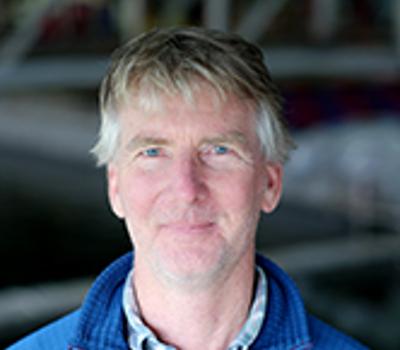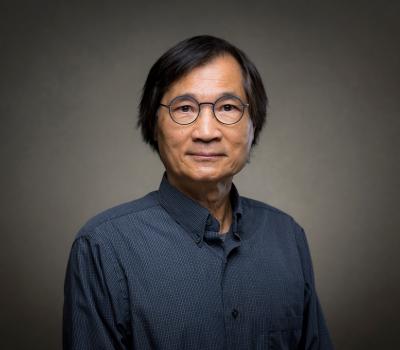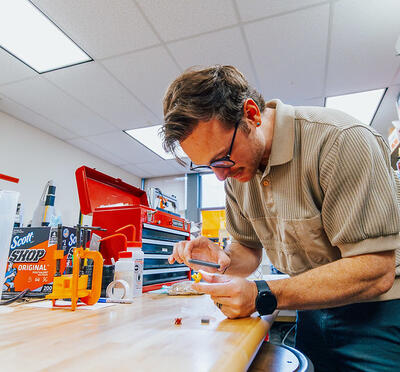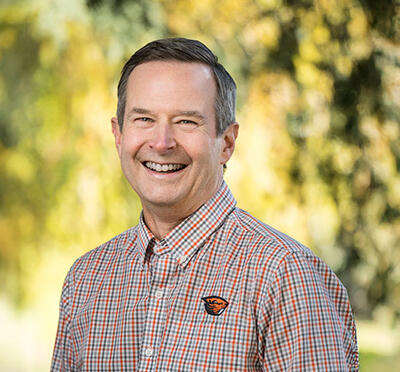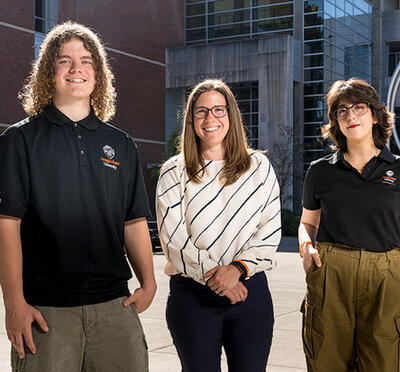A CONSERVATION DRIVEN CAREER
A lover of outdoor activities from the time she was a child, Mary Beth Berkes (’10 M.S., Coastal and Ocean Engineering) was drawn to an environmental and conservation-focused career. More than nine years into her role as an assistant civil technical leader specializing in stream restoration at GAI Consultants, Berkes finds her job continuously rewarding and challenging.
“To see a stream improve, to be there through the before and after, is always amazing,” she said. “Observing and monitoring the construction work is the most challenging part of stream restoration because we have to make sure the contractor reads, understands, and implements our engineering plans correctly.”
Berkes’ work at GAI includes repairing and stabilizing streams, restoring their function, and protecting aquatic life, as well as developing sustainable solutions for hydraulic design projects that reduce flooding and environmental impacts. For her accomplishments, she was named the 2018 Young Professional of the Year by the Society of American Military Engineers Pittsburgh Post.
“SAME’s award provided me an opportunity to tell my career story, which will hopefully inspire others,” she said. “I had kind of a breakout year in my career, so it was nice to earn the recognition.” Berkes said that being involved with the professional engineering organization has benefitted her in many ways. “There are monthly meetings, which are good for networking, and continuing education opportunities, which I need to retain my professional engineer license. Plus, I love being involved in SAME outreach at engineering weeks and STEM fairs, all efforts to inspire the next generation.”
Berkes also values opportunities to inspire other women in engineering. In fact, her whole stream design team is made up of female scientists and engineers.
Gender is not much of an issue in many aspects of her career, but when working with construction crews, she has encountered some inaccurate assumptions, “until I start talking,” she said, laughing.
“The key is to not be intimidated and to know your stuff,” Berkes said.
After her junior year at the University of Pittsburgh, where she earned her civil engineering degree, she spent a summer as a research assistant at the University of Notre Dame. There, she developed a cross-hazard approach to coastal design for areas subjected to tsunamis. This research program ended with a field study in Thailand to conduct reconnaissance following the December 2004 Indian Ocean tsunami.
Inspired, Berkes decided she wanted to study sustainable engineering.
“Oregon State had a great program that would allow me that opportunity,” she said, noting the College of Engineering’s reputation for interdisciplinary and nontraditional research, experiential learning focus, highly respected faculty, and unique research facilities.
At the College of Engineering, Berkes designed and conducted a large-scale experiment in the large wave flume at the O.H. Hinsdale Wave Research Laboratory.
“I studied the effects of small seawalls on reducing wave forces on onshore vertical walls and compared experimental results to predictive equations for engineering design,” she explained. “At Oregon State, I developed my hazard-mitigation, flooding, and hydraulic engineering focus. I learned how to run experiments and present my results in an effective way.”
Civil and Construction Engineering Professor Daniel Cox, then director of the Wave Research Laboratory, and the whole team there supported Berkes in her research. Professor Solomon Yim, Professor Peter Ruggiero, and others involved in the university’s coastal engineering and hazard mitigation programs also played a big part in her education and career aspirations.
When she moved back to Pittsburgh to be closer to family and her now-husband, GAI’s environmental work, especially with streams, drew her to the job. Her many years there are a testament to the opportunities for exploration and career progression GAI has offered her, as well as the camaraderie she shares with her colleagues.
“Stream restoration is really cool because every project is different and you’re always out in the field or at interesting meetings, not stuck in an office,” Berkes said.
When she is not hard at work, Berkes and her husband spend lots of time enjoying the great outdoors — kayaking, paddle-boarding, and going on stream hikes with their dog. She is appreciative of the beauty and enjoyment her local natural resources offer and is committed to protecting them. “I’m a conservationist at heart, so I get to use engineering to support the things that are important to me,” Berkes said.

